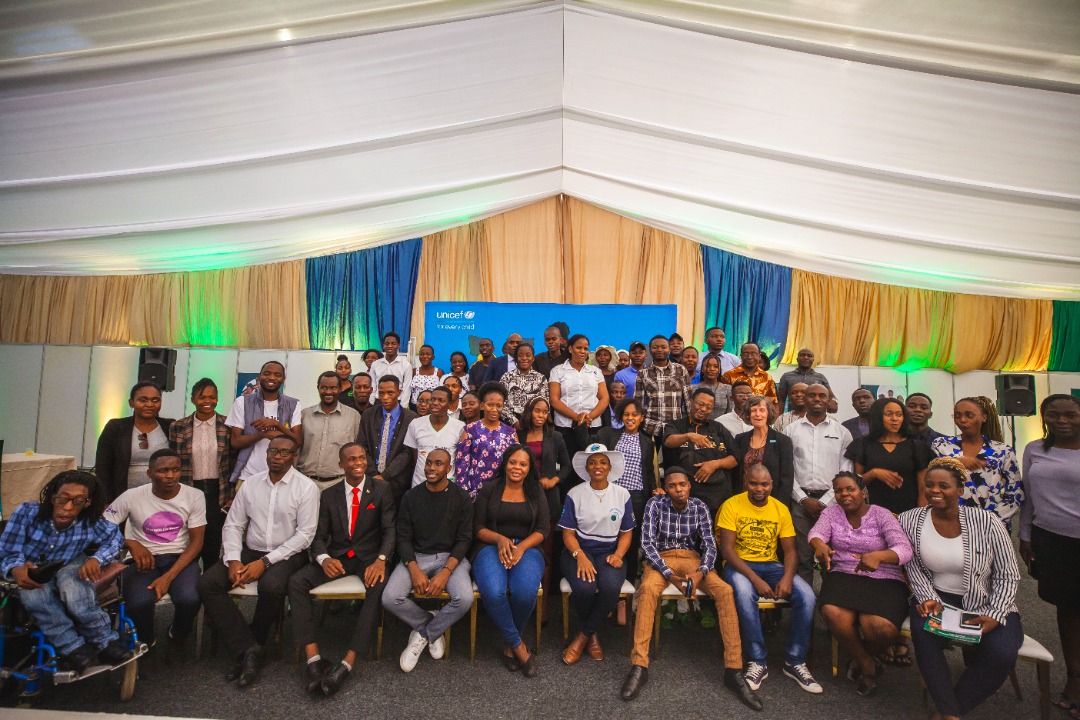|
Getting your Trinity Audio player ready...
|
BY ZIMBABWE YOUTHS FOR CLIMATE CHANGE
Appreciating the support from the Government of Zimbabwe Ministry of Environment Climate Tourism and Hospitality Industry (MECTHI), ACT alliance, United Nations International Children’s Emergency Fund (UNICEF), United Nations Development Program (UNDP), and Zimbabwe Youth Environmental organizations for organizing the first Local Conference Of Children and Youth in Zimbabwe.
Acknowledging article 64 of the Glasgow Climate Pact which Urges Parties and stakeholders to ensure meaningful youth participation and representation in multilateral, national and local decision-making processes, including under the Convention and the Paris Agreement.
Acknowledging Zimbabwe’s Nationally Determined Contributions which seeks to ensure that youth perspectives are represented when planning for implementation.
Recognising the efforts by Zimbabwean youths in establishing the Nationally Determined Contributions Policy Brief which highlights their Clear Climate Actions in different sectors.
CLIMATE FINANCE
There are major concerns about accessing Climate Finance amongst Children and Youth groups to upscale Climate Change Innovations, and improve adaptive capacity as well as institutional capacity for youth-led organizations.
The Children and Youth call for the establishment of a separate fund from the National Fiscus or the National Environmental Fund and call it the Zimbabwe Youth Environmental Fund, to enable easy access to funds for youth-led adaptation and mitigation projects (25% of climate finance allocation and inflow). The fund should be able to take into consideration bureaucratic challenges. Main funding channels have limited youth-led groups and organizations accessing them due to complex paperwork requirements and have minimal restrictions for wider implementation of programs.
We encourage all stakeholders to allocate some funds to children and youth groups or organizations working on Climate Change and consider incorporating their programing on existing funds which have never been operationalized due to lack of capital injection and institutional arrangements.
We continuously encourage the government to establish policies that will attract the private sector to operate. This includes incentives and subsidies which entail a good working environment to partner with youth organizations in various sectors.
We demand that Mining companies and all degrading companies should be accountable and committed to social corporate responsibility through land rehabilitation and restoration programs.
We demand a transparent accountability framework of financial inflows and outflows on Climate Change.
We call for direct stand-alone finance towards Climate Education, Capacity building, scholarships, research and development and subsidized technology transfer.
CLIMATE CHANGE ADAPTATION
There is a huge knowledge gap on the techniques of climate change adaptation among youth and therefore there is a need to invest in capacity development and knowledge transfer by the government.
With deep concern children and youth demand urgent action on the countries’ National Adaptation Plans (NAPs) and an effective implementing role going forward.
We urge the government effectively support the co-production of weather forecasts and early warning systems with stakeholders like children and youth and strengthen traditional early warning systems making sure the knowledge is passed from generation to generation.
We continuously remind the government of the importance of inclusion in the Global Goal on Adaptation discussions and programming at the National Level using a bottom-up approach making sure children and youth frontliners, those with disabilities are part of the conversation.
FOOD SYSTEMS AND AGRICULTURE
Climate Change has contributed to low food production affecting humans and animals and also contributing to high malnutrition among children, therefore:
We continue to encourage the GoZ to support front-line communities to adopt sustainable means of farming practices e.g. climate smart agriculture and Agroeceological practices in order to steward land sustainably, strengthen local markets, absorb carbon, and adapt to the existential threat of climate change.
We call upon accessible and affordable climate finance to improve water and energy access for youths in order to improve household food security and national food security.
We call upon the government and corporates to aid support for youth-led agricultural initiatives through technical support, facilitating access to land as well as equal access to resources and means to implement sustainable agricultural projects in line with government planning. Support may mean also providing pilot projects for small grains contract farming for youths in communities through corporate support.
ACTION FOR CLIMATE EMPOWERMENT
We call upon the implementation of the Climate Change Learning strategy to be incorporated into the education curriculum and made compulsory up to the tertiary level for Climate Change is the greatest threat of our time.
We call upon a mechanism of incorporating climate education (civic) informally to cater to those who are not at formal institutions but are also affected by climate change.
We request the government of Zimbabwe and its partners to publish child-friendly policies including the Nationally Determined Contributions NDCs and Climate Change learning strategy so as to increase knowledge among children and youth.
We request the government of Zimbabwe develop a robust ongoing program and mechanism to ensure the dissemination of climate information to the public.
We request the Need to establish more research, training, and development institutions and platforms that will capacitate our nation in climate adaptation and mitigation.
Youths are committed to supporting the NDCs implementation process, awareness, and education. We request support from the government and partners to build capacity on translating most climate-related documents to local languages for easier dissemination as well as having regular slots on communal radios.
The youth organisations comprise the African Youth Initiative On Climate Change; Environmental Rights Advocacy Trust; Young Volunteers for the Environment; Green Institute Trust; Zimbabwe Youth Biodiversity Network; Green Hut trust; Community Climate Action Trust; Green Shango Trust; Advocates4Earth; Sustainable Climate Action Trust; Innovative Village for Young African Minds; Rural Enterprise Trust of Zimbabwe; and Earthday.org






